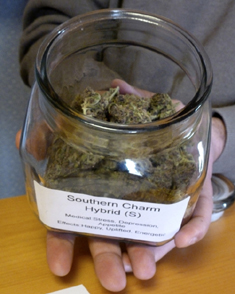Tag: FCC
APTS chief rebuts FCC chairman on technical limits of channel-sharing
In an exchange with FCC Chairman Tom Wheeler, public television’s top lobbyist sought to dial back expectations for channel-sharing pilot tests involving ...FCC extends reply period for comments on AM radio to March 20
The FCC is giving interested parties another 30 days to weigh in on comments already made regarding proposed rule changes that would ...NPR urges FCC to help stations dislocated by spectrum auction
NPR has asked the FCC to consider reimbursing broadcasters for the costs of any antenna relocations that may result from the upcoming ...FCC extends deadline for LPFM applications
The FCC has set a new deadline for applicants seeking licenses for low-power FM stations, agreeing to keep its filing window open ...Technical hurdles, unknown costs loom in spectrum repacking
As the FCC prepares to reshuffle the layout of the nation’s television spectrum for the repacking process, public broadcasters are girding for ...Uncertainty about marijuana’s status casts doubt on dispensary underwriting
Public radio stations are divided over whether to accept underwriting donations from what could be an up-and-coming source of income: marijuana dispensaries.WBUR cites marathon reporting in endorsement of looser FCC indecency standards
Boston's WBUR joined NPR and other news outlets in advocating for more leniency when it comes to indecency standards, citing its reporting ...FCC rejects AFA complaint over criteria for noncommercial FM applications
The FCC has affirmed its criteria for awarding broadcast licenses to noncommercial applicants, rejecting a complaint by a religious broadcaster that the ...NPR, other noncoms push for laxer FCC indecency rules
NPR is advocating for the Federal Communications Commission to loosen its policies surrounding broadcast decency standards, and retreat from a “zero tolerances” ...Nominee for FCC chair pledges to stick to spectrum auction schedule
During his June 18 Senate confirmation hearing for the position of Federal Communications Commission chairman, presidential nominee Tom Wheeler said it is ...Butler cautiously optimistic about spectrum auctions’ effects on public broadcasting
As broadcasters and their representatives prepare for the FCC’s upcoming auction of television broadcast spectrum, public TV’s top lobbyist is proceeding with ...Obama nominates former PBS board member Tom Wheeler to head FCC
President Obama has nominated cable and wireless lobbyist Tom Wheeler, a former member of the PBS Board, to chair the Federal Communications ...Arizona radio stations ask FCC for looser underwriting rules
The licensee of KJZZ and KBAQ in Phoenix has asked the FCC for temporary permission to sidestep the agency’s rules governing language ...FCC Chair Genachowski announces resignation
Julius Genachowski, FCC chairman since 2009, told commission employees this morning that he’ll be departing “in the coming weeks.”Two Native tribes are first to benefit from FCC rules favoring tribal applicants
Native tribes in New Mexico and Arizona are the first to benefit from the FCC’s Tribal Radio Priority, a provision created by ...




